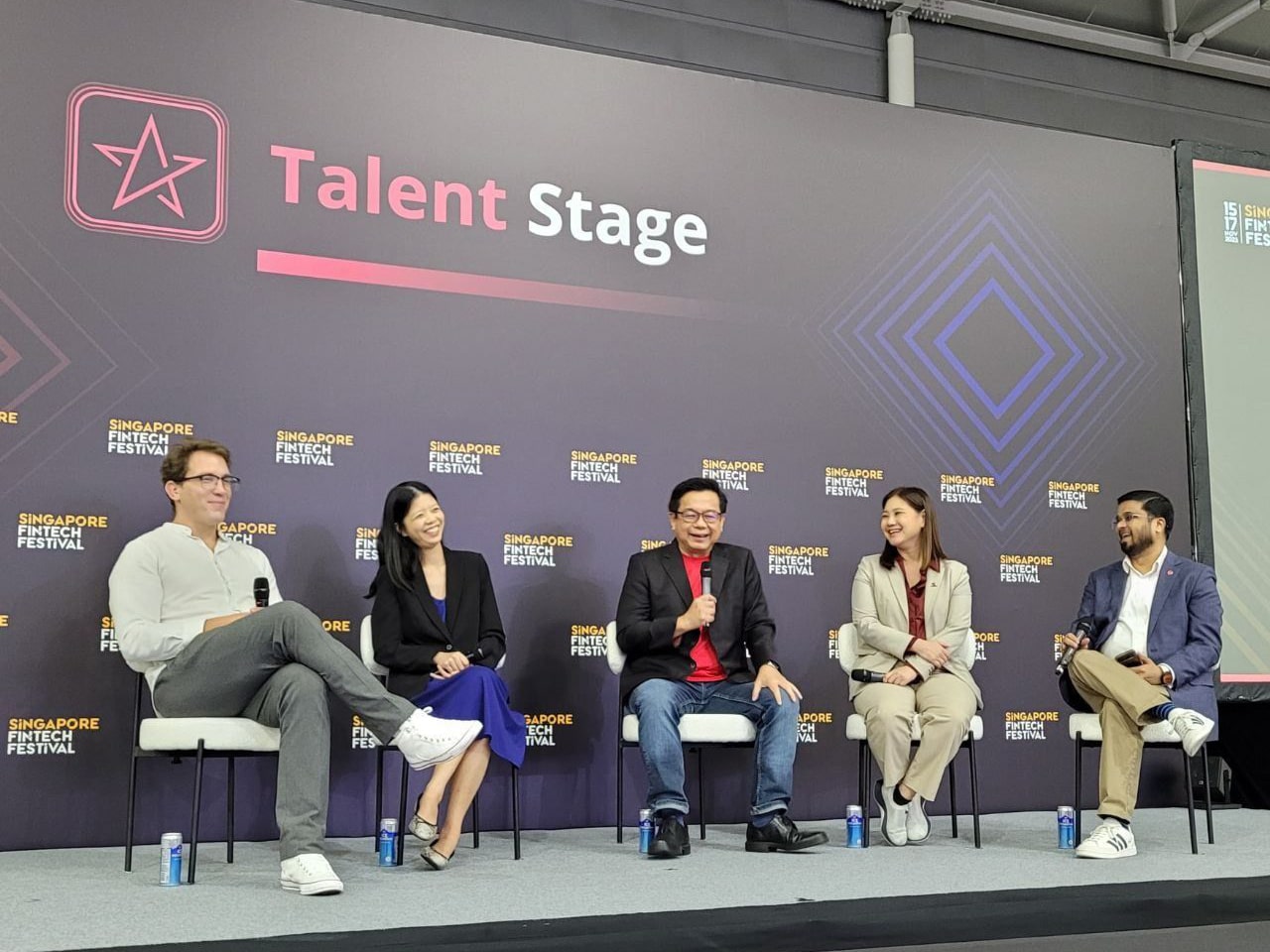17 November 2023, Singapore
At this year’s record-breaking Singapore FinTech Festival, Singapore FinTech Association (SFA) played a pivotal role in steering discussions towards the burgeoning impact of AI in finance and the pursuit of sustainability objectives.
Singapore FinTech Festival (SFF), now in its eighth edition, is a dynamic convergence of innovation and collaboration: It is an assembly of some of the sharpest minds and most influential leaders in the global technology and financial arena, and a place to forge valuable connections with industry peers, trade insights and experience cutting-edge technologies. SFF also offers attendees a glimpse into the industry’s rapidly evolving and increasingly complex future.
SFF is one of Singapore’s marquee events, spread across six cavernous halls at the Singapore EXPO Convention & Exhibition Centre. This year, the convention attracted over 66,000 attendees — including heads of state, policymakers and financial services leaders — from across the globe.
As a leading financial hub, Singapore has constantly been at the forefront of FinTech innovation. At SFF’s Regulator Lounge, Singapore FinTech Association’s CEO, Reuben Lim, also shared how Singapore’s business-friendly climate and high internet penetration make it an ideal launchpad for FinTech companies to expand into Southeast Asia.
SFA is privileged to have been one of SFF 2023’s 36 international pavilions. For three days, SFA facilitated insightful discussions about key developments in the FinTech landscape and strengthened vital connections with our industry partners.
Here are some key highlights from SFA’s pavilion at SFF.
AI: Not a Foe but a Friend
The advent of Generative Artificial Intelligence (AI) is upending white-collar jobs. Should today’s professionals fear AI’s rise as a threat to their careers or embrace it as an enhancement to their skill sets? The panellists at “Brave New World: Building A Future Skill Set”, moderated by SFA’s president, Shadab Taiyabi, favoured the latter.
The panel, held at SFF’s Talent Stage, consisted of Pei Ying Chua, APAC Head Economist of LinkedIn; Laurence Liew, Director of AI Innovation at AI Singapore; Nikola Pavesic, Director of DevEx & Startups at Infobip; and Oranuch Lerdsuwankij, co-founder and CEO of Techsauce.
The panellists believed that AI would become integral to how employees think and work, but it doesn’t mean it would replace the need for domain knowledge; Generative AI can help format information and sift data quickly, freeing up professionals to focus on higher-level work.
Developing evergreen skills, such as empathy, critical thinking and adaptability, will also remain essential in navigating the challenges of the future workplace.
SFA’s ExCo member, Chye Kit Chionh, co-founder and CEO of RegTech company Cynopsis Solutions, took the SFF Regulation Stage to share how banks can use AI-powered RegTech solutions to optimise regulatory compliance checks. By automating the compliance process using AI tools, banks can minimise operational expenditure.
“Using AI as a co-pilot compliance officer is no longer optional; it’s a must-have rather than a good-to-have,” said Chye.
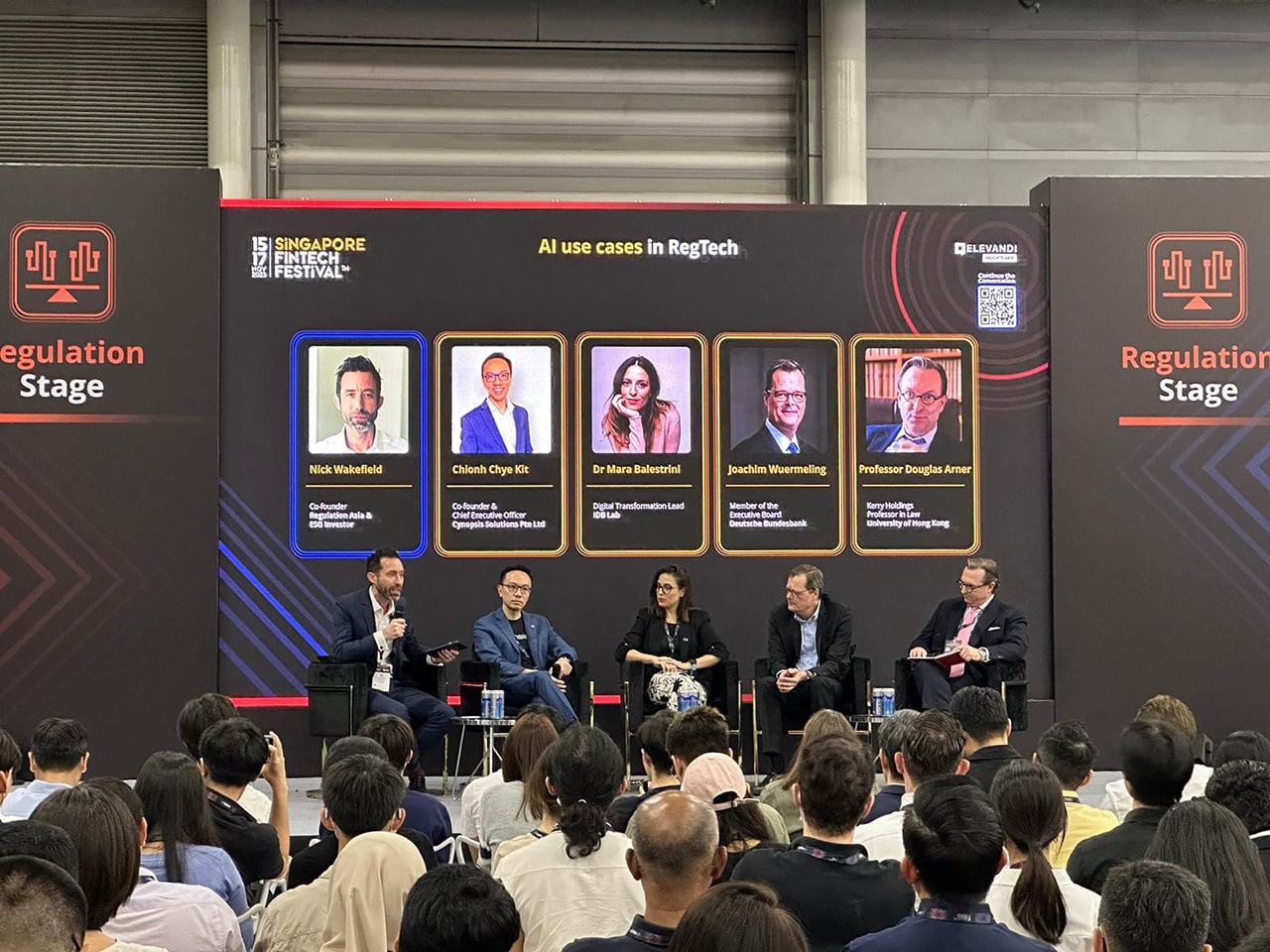
Spurring Employees to Upskill
According to the 5th edition of SFA’s FinTech Talent Report, published in collaboration with Accenture Singapore, companies must cultivate a people-centric culture that supports continuous skills development in order to stay competitive and take advantage of emerging technologies.
The report, which was launched at SFF, offered key insights into talent trends in the industry, revealing key factors that impact hiring and retention. It found that 56% of Singapore FinTechs face a skills gap challenge when hiring and that 59% of Singapore FinTechs are spending above S$500 (US$373) on learning and development per employee per year. The report also highlighted that organisations can complement their own talent by tapping on external sources, such as gig workers.

In an interview with Channel NewsAsia, Shadab Taiyabi expounded on the report’s findings. “Our research says people join the FinTech sector because of the ability to grow, learn, and have and a good career path… I think it’s all about continuous learning, and the companies are taking that very, very seriously,”
More Businesses Turning Green
SFA launched the 7th edition of its FinTech in ASEAN report, “Seeding the Green Transition”, at SFF’s ESG Stage. Published in collaboration with UOB and PwC, the report offers insights about ASEAN-based businesses that are leading the sustainability charge.
The report highlighted that 40% of ASEAN businesses have adopted sustainable practices, with a growing number driven towards net-zero goals. Additionally, Green FinTechs, such as those operating in data analytics, data collection, carbon services, reporting, infrastructure and RegTech, are instrumental in helping businesses meet the industry’s sustainability goals.
In the accompanying panel discussion, the speakers highlighted how organisations can be ahead of the curve by supporting green initiatives, making them more attractive to investors.
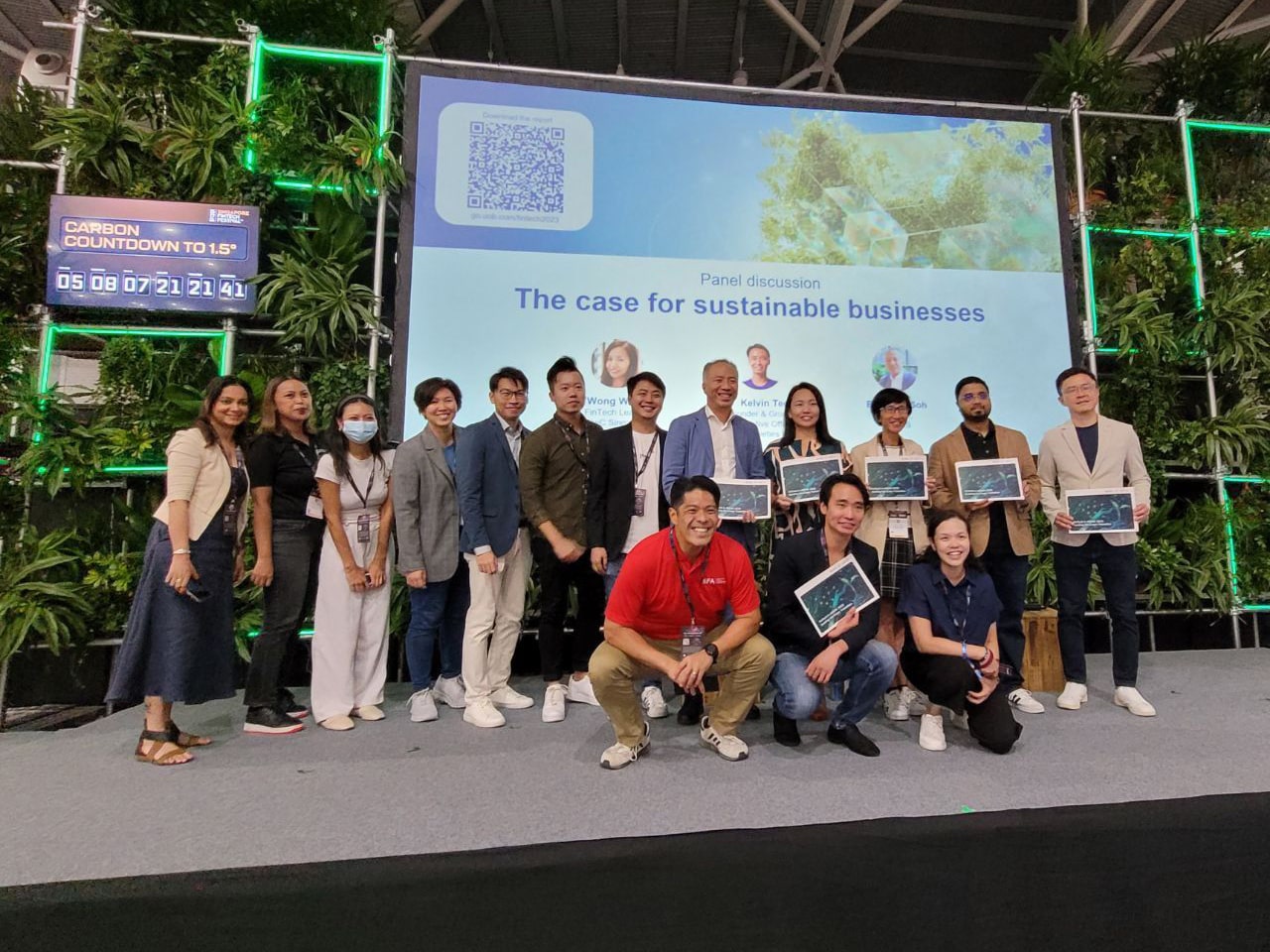
Addressing the Gender Imbalance
While there have been efforts to tackle gender disparity in the workplace, there are still teething issues to address.
SFF launched its first report on this theme at this year’s SFF. Entitled “Taking Stock & Looking Ahead: Gender Diversity in Southeast Asia’s FinTech Landscape”, the report was jointly produced with Russell Reynolds Associates and FinTech Nation to spotlight issues concerning women’s representation in FinTech.
The report highlighted that women are heavily underrepresented in SEA FinTech, holding just 14% of management, board and investor roles across early stage to public companies. It recommended mentorship and making diversity a business imperative to improve gender inclusivity in FinTech.
At SFF’s TED-inspired stage, The Founders Peak, Shivani Mukherjee, SFA and Women in FinTech subcommittee member, led a thought-provoking discussion on gender imbalance in venture capital and entrepreneurship. With all-female teams raising 25% less than all-male teams and even lower representation for women of colour, our speakers rallied women in FinTech to take risks and keep trying to break the barrier and challenge the status quo.

In another panel on gender issues at the Talent Stage, Eelee Lua, a Women in Fintech subcommittee member, led panellists through a candid discussion on barriers that women face in the FinTech workplace and best practices to enhance diversity.
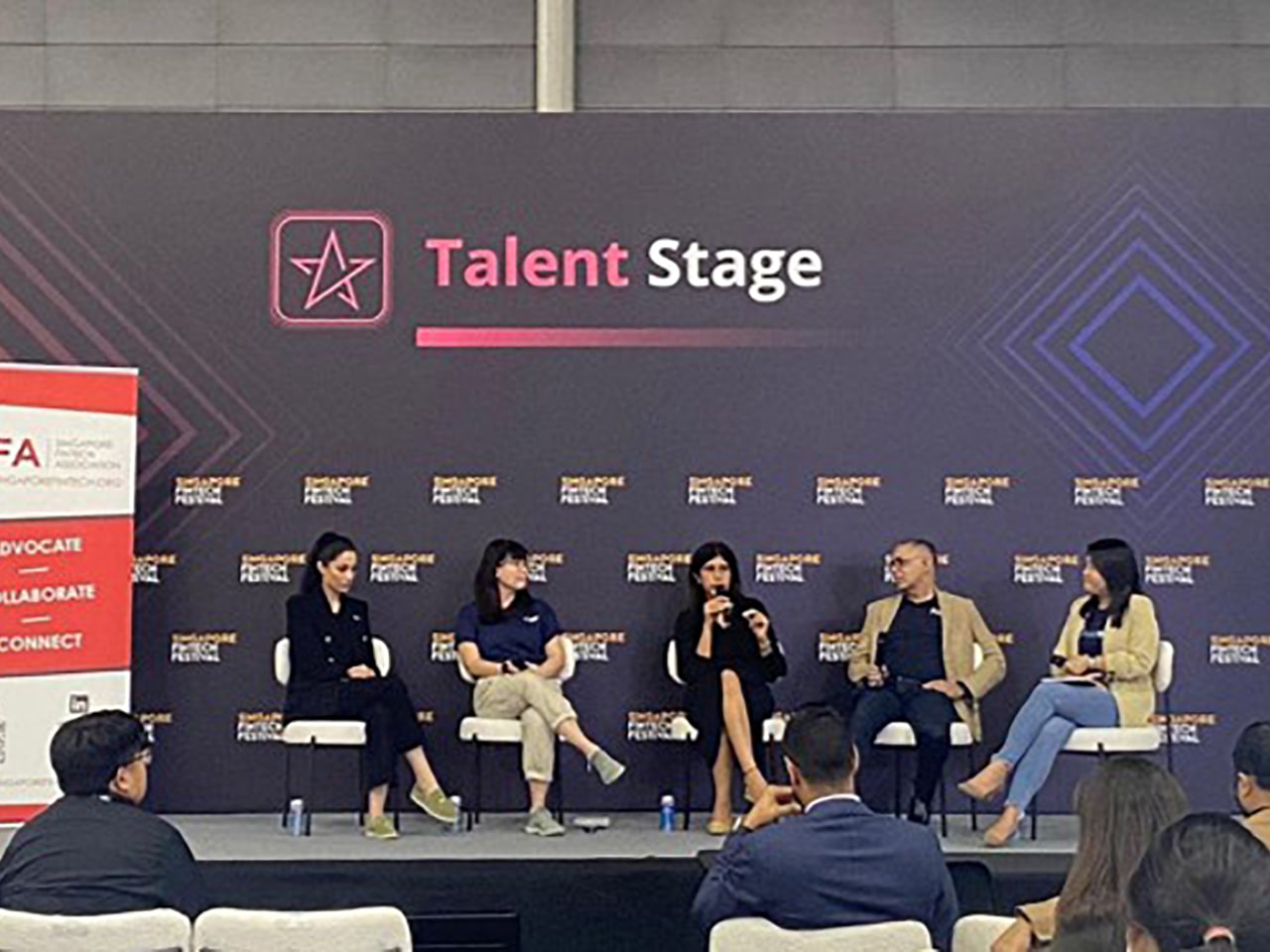
SFA’s Women in FinTech subcommittee members gathered at SFF’s Pay-It-Forward Lounge to share inspirational stories on how they build their careers and provide advice to aspiring leaders in FinTech.
Fostering Connections
Partnerships and collaborations hold the key to fostering cross-pollination of ideas across international borders.
At SFF, SFA inked MOUs with the Hungarian Fintech Association and FinTech Belgium. Through this initiative, it aims to further the growth and development of FinTech globally.
SFA also played host to the Asia FinTech Alliance (AFA), bringing together industry players from ten countries to engage in a free-flowing discussion of financial innovations and technologies and catch up on each other’s developments.
Pushing the Envelope
Through its Global FinTech Awards Night, SFF aims to recognise the trailblazers who spearhead and develop innovative FinTech solutions to tackle pain points in the financial services sector. This year, the Monetary Authority of Singapore (MAS) partnered with SFA to give out cash prizes, thanks to the newly launched ‘Fintech Gives Back’ initiative supported by OKX, Ripple, NETS, YouTrip, PingPong Payments and Syfe.
New thematic categories in AI and Environmental, Social and Governance (ESG) FinTech were introduced this year, underscoring the growing importance of emerging technologies. Thirteen winners from diverse fields were selected from a total of 96 submissions. Together, they serve as a lodestar, guiding FinTech’s journey through exciting, uncharted territory.
As an appreciation for Ravi Menon, Managing Director of MAS’ unwavering commitment to Singapore’s financial excellence and leadership, SFA, on behalf of the FinTech community, presented a commission drawing commemorating his keynote speech at the very first SFF as a special gift.
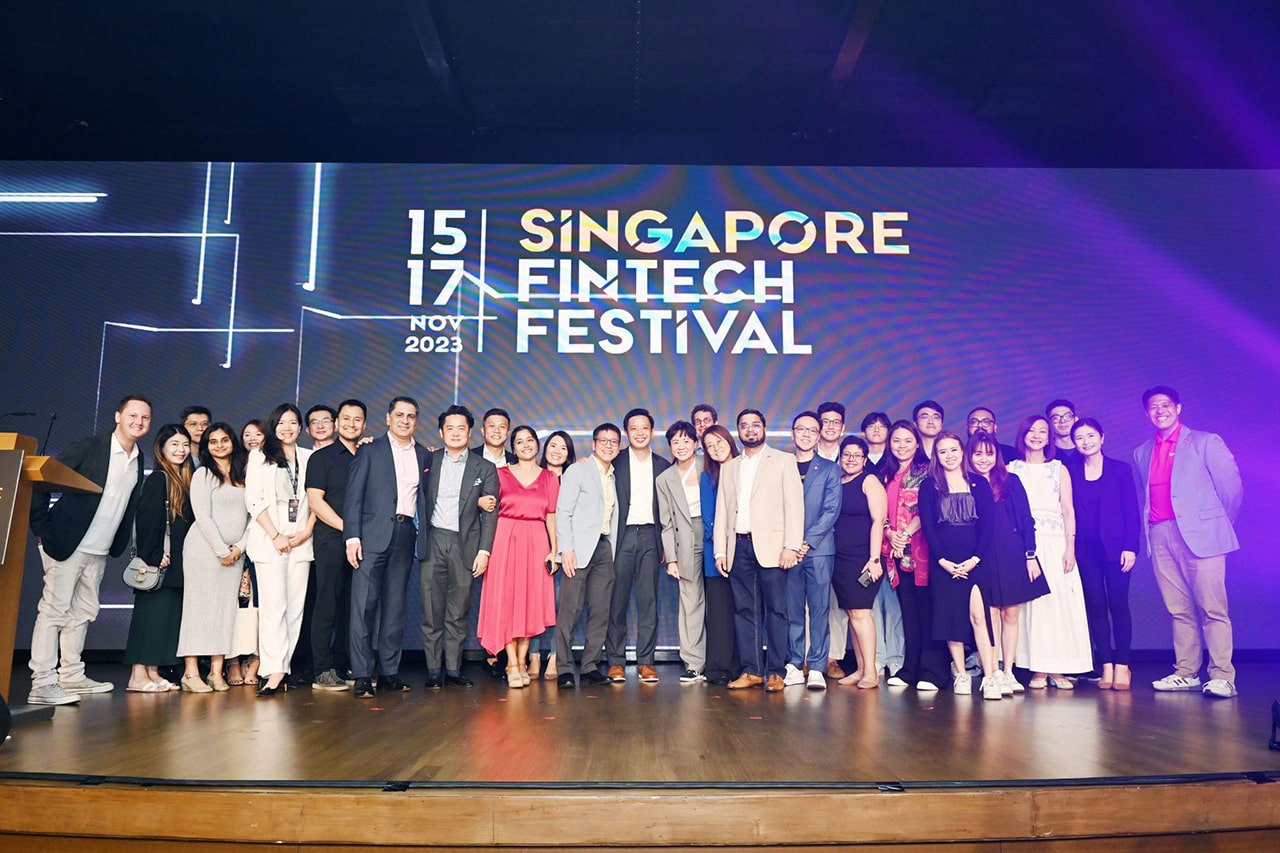
Looking Ahead
This year’s SFF showcased the rapid pace of technological advancement, edging us closer to universal financial inclusion by harnessing revolutionary FinTech innovations and fostering connections within financial ecosystems. It also emphasised financial leaders’ increasing drive to promote fairness and sustainability across the world.
As we conclude an exhilarating year in FinTech, the world eagerly awaits the prospects of 2024.


